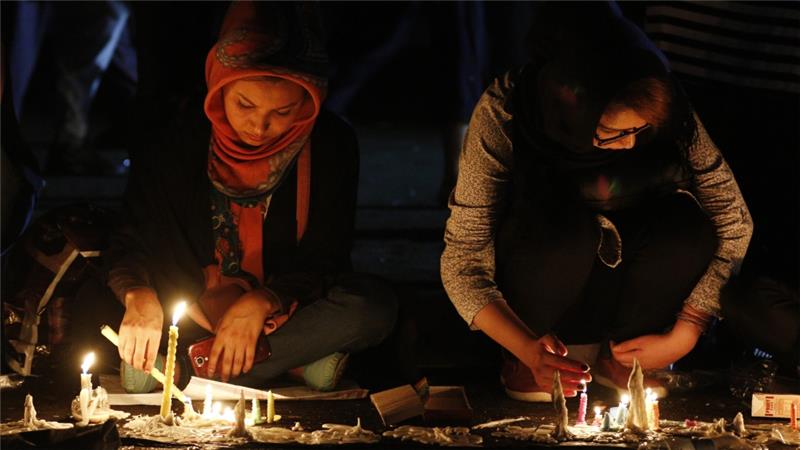Ethnic polarisation: Afghanistan’s emerging threat

Despite Afghans’ proven records in ethnic harmony, the growing ethnic polarisation can easily spread across the society.
By Dr. Davood Moradian
July 26, 2016
In Afghanistan’s “theme park of challenges”, ethnic politics is becoming a key contested debate, alongside the usual and known issues.
The Saturday terrorist attack that targeted predominantly the Hazara community has heightened political tension.
From harsh exchanges among growing Afghan social media users (PDF) to the controversy over how to name universities, the disputed 2014 presidential election to the stalled electoral reforms, ethnic politics is polarising political elites and the state bureaucracy.
While most Afghan political actors engage in one way or other in ethnic politics, they are hesitant to publicly and openly articulate their ethnic views – particularly to their external interlocutors.
Such a polarisation and, more importantly, its collective denial, could take the country into unchartered territory.
 |
| Afghans pray for the victims of a suicide bomb blast during a memorial in Kabul,July 23 [EPA] |
While it had successfully codified some impressive civic and political rights, gender equality and participatory politics, the new Afghan constitution has unfortunately also institutionalised tribal nationalism and ethnic hierarchy.
It adopted a strong presidential system to be accompanied by two symbolic vice presidents and almost no role for political parties.
The drafters’ assumption and ensuing implementation was the allocation of presidency to a Pashtun and two slots of vice presidency to be given to the remaining ethnic groups – Tajik, Hazara, Uzbek, and others. Such a strong presidential distribution of power has become a “winner-takes-all system”.
The main advocates of a strong presidential system were expat technocrats, while the Mujahedeen groups were mainly in favour of a parliamentary system.
The former’s choice became aligned with Washington’s preference to deal with a strongman and London’s historical ethnic prejudice and its Pakistan-oriented policy.
OPINION: Afghanistan’s shaky foundations
The concentration of power in Kabul had further widened the gap between the centre and remote provinces, particularly in Taliban-infested areas.
The controversial 2014 presidential election has significantly exacerbated and deepened ethnic politics; an election that was characterised by the European Union observers as “a North Korea situation”.
The arrangement in the aftermath with the formation of the National Unity Government brokered by the United States Secretary of State John Kerry helped a peaceful transfer of power, but not a legal and constitutional one.
President Ashraf Ghani’s refusal to implement political and electoral reforms, and growing accusation against his ethnic and exclusionary politics have exacerbated the 2014 disputed presidential election.
The way forward
Ethnic identity and occasional ethnic tension are the features of every multi-ethnic society – involving power, interest, identity, grievances, fear, envy and hatred.
However, the failure to manage ethnic politics is one of the drivers of socioeconomic underdevelopment, ethnic and civil wars, state collapse, ethnic cleansing and even genocide.
Despite Afghans’ proven records in ethnic harmony, the growing ethnic polarisation among the elites and state machinery can easily spread to other sectors of society.
There are vivid and recent examples that show no country is immune from the poisonous politics of hatred and division.
A transparent, rational, emancipatory, ethical and political intra-Afghan dialogue is the way forward in transforming tribal nationalism into a fully rooted civic nationalism, with ensuing institutional and constitutional reforms.
Direct Link
